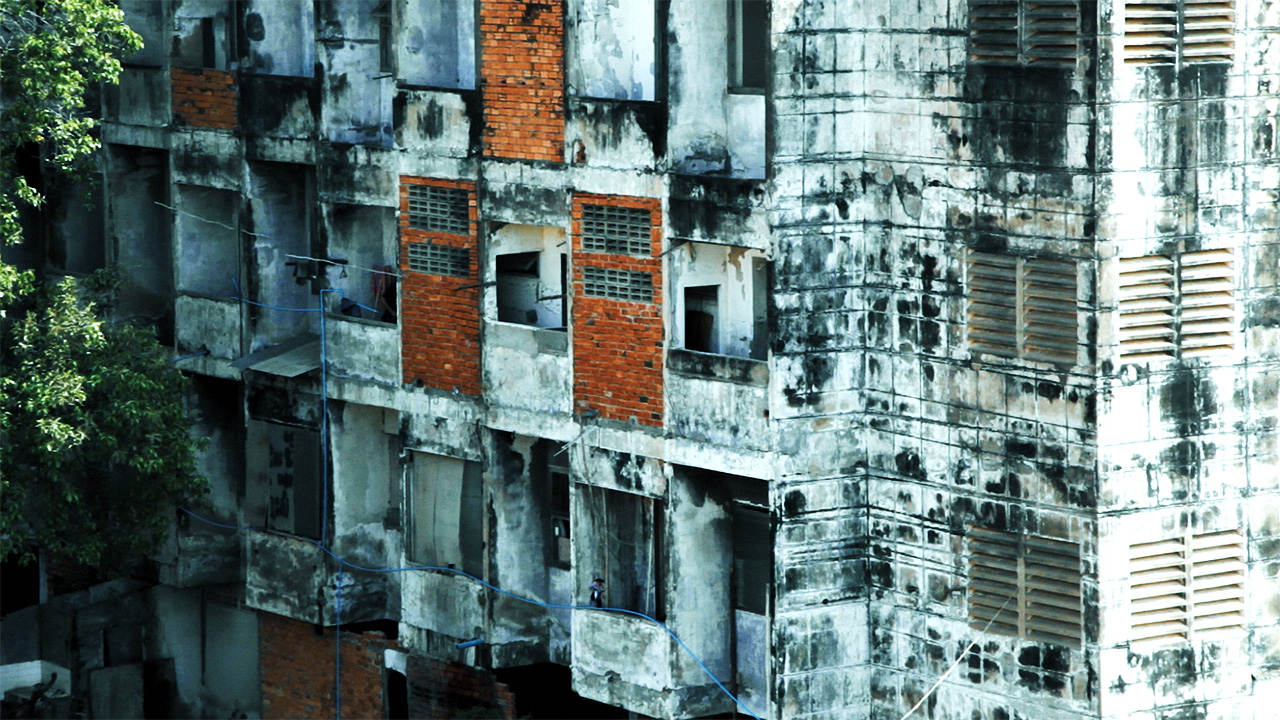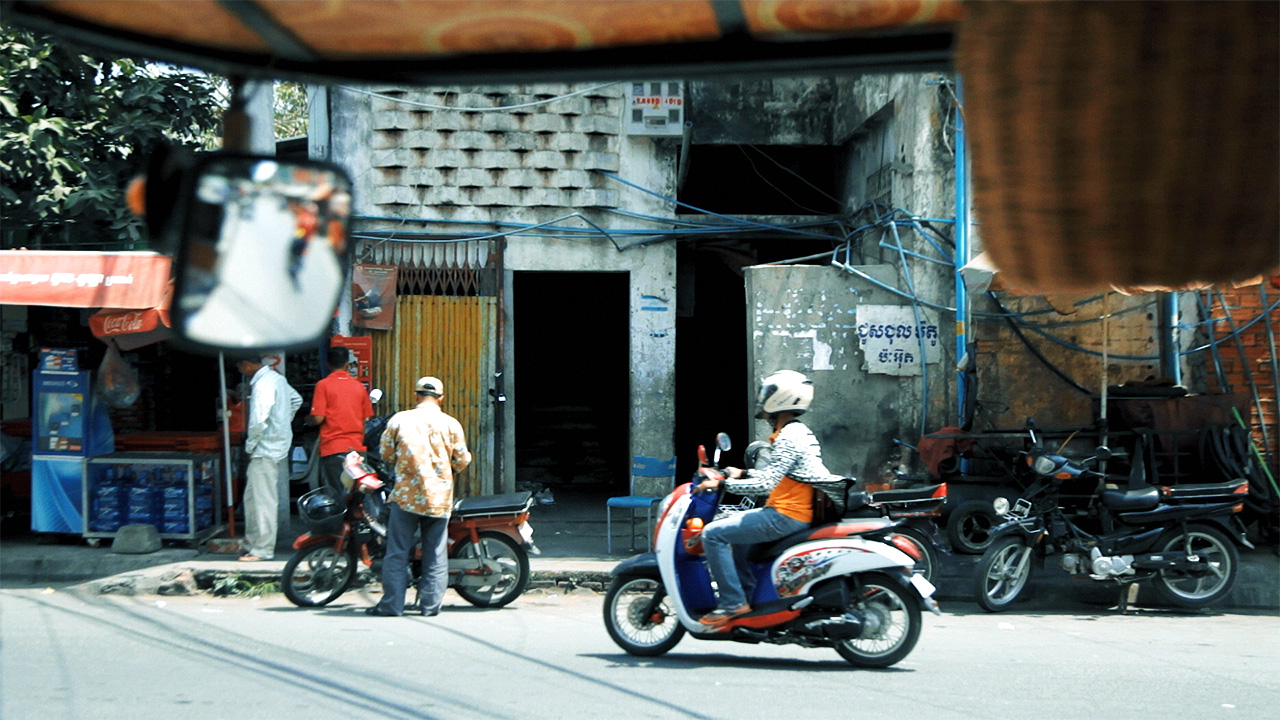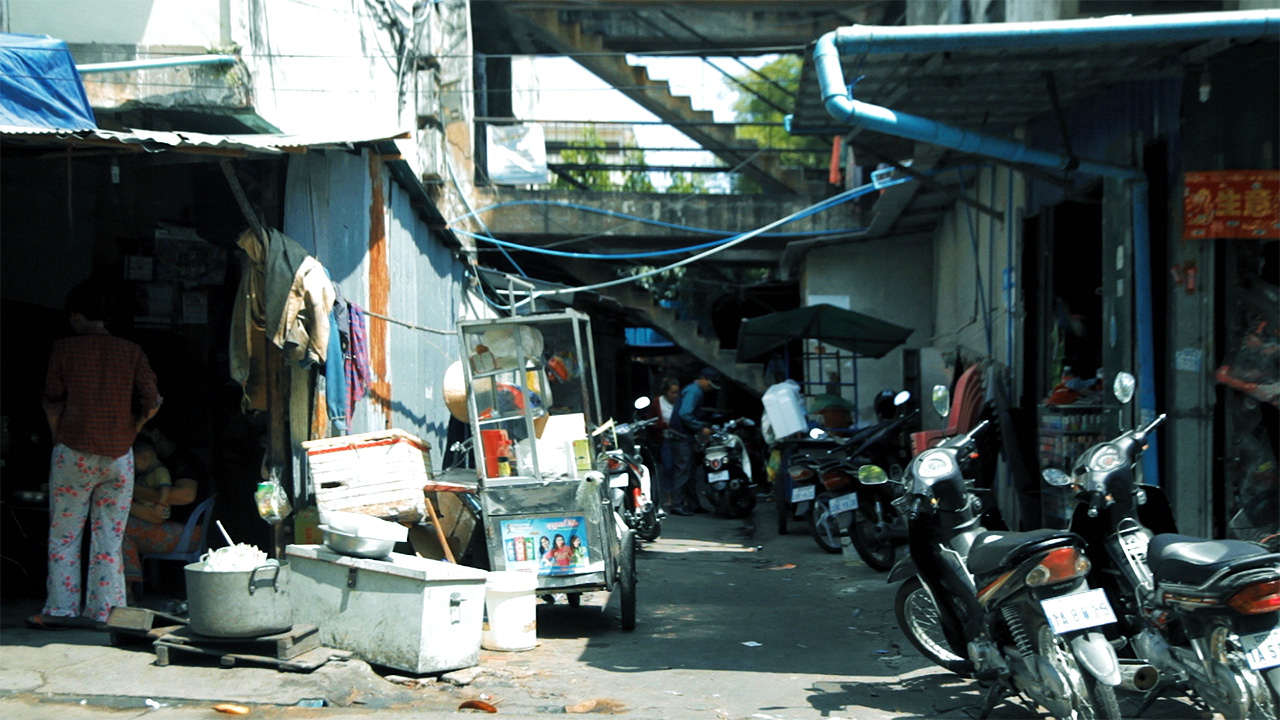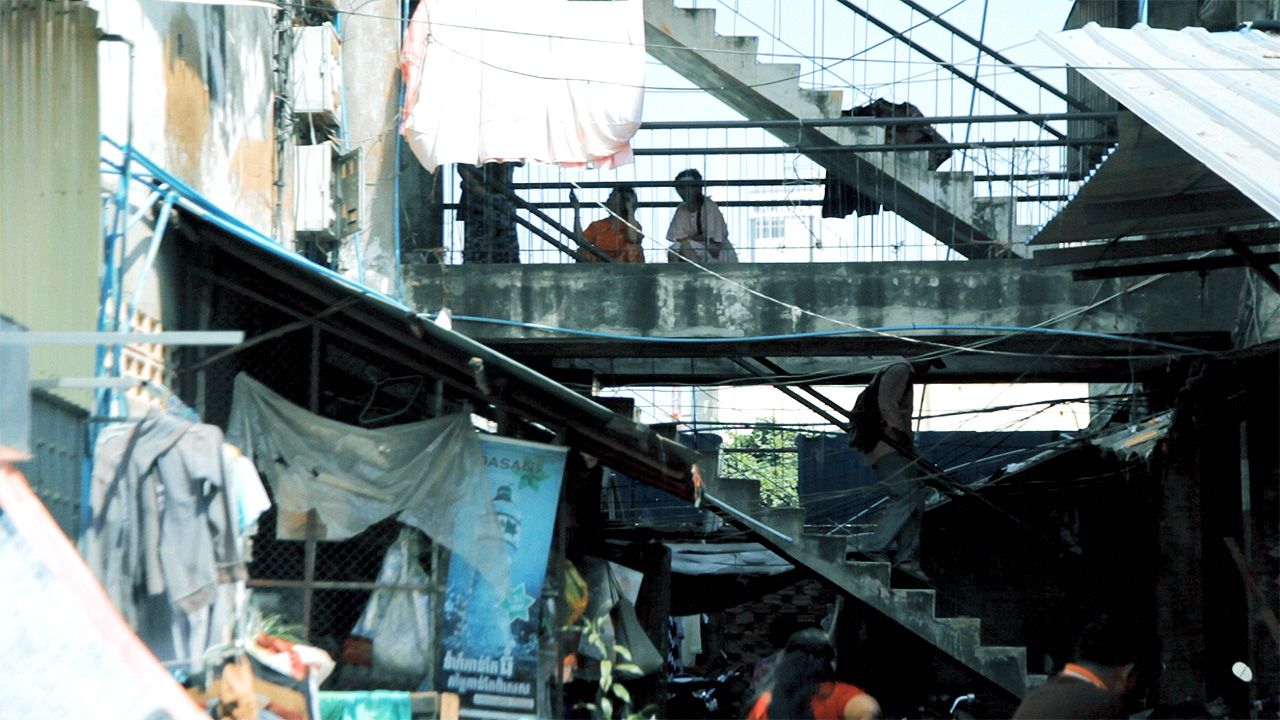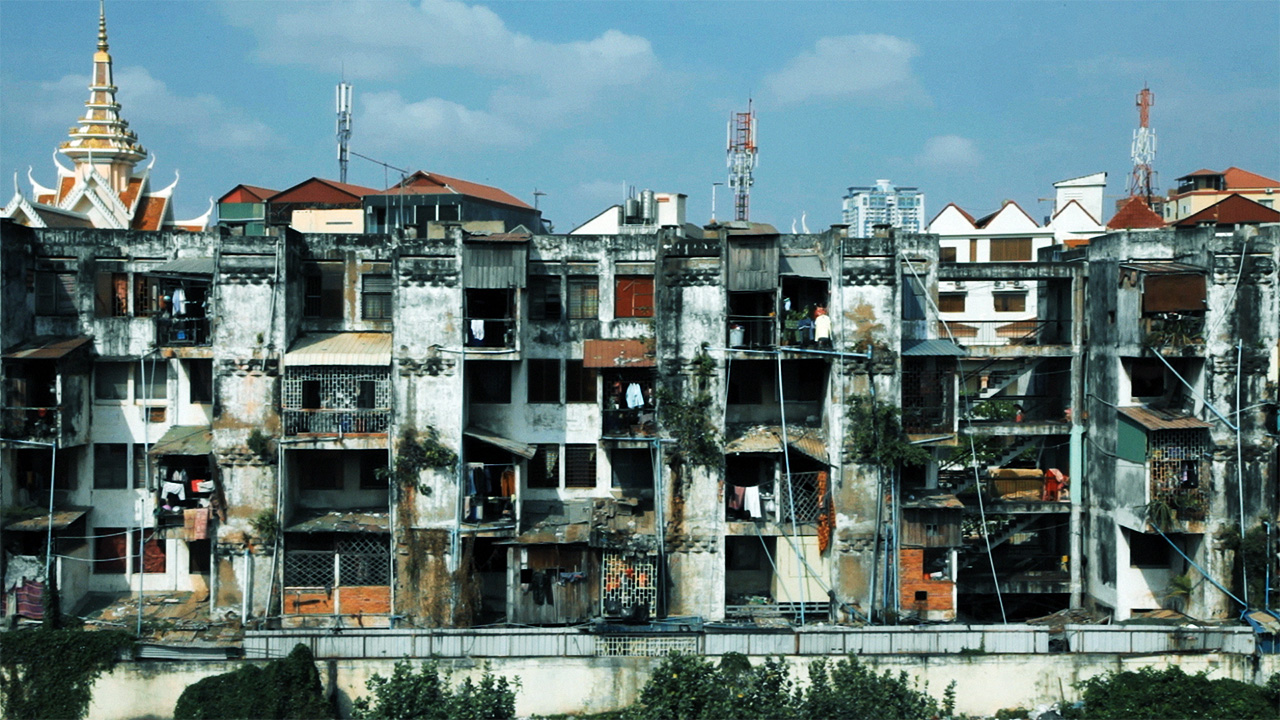conceived as the sixth installment of the multi-part series future past perfect, this short film is the result of a long-standing fascination with the famous cambodian white building, a large apartment complex in the center of phnom penh. nicolai's interest and motivation for the film project are rooted in his personal connection to the artist collective sa sa art projects who have also and continuously dealt with the housing complex in artistic ways. for the artist, the architecture of the white building is a prime example of a form adequate to its building materials and developed organically out of function. The nature of the complex, shaped by the residents and their needs, uniquely reflects a heterogeneous architecture that is not planned and is organized from within itself. giving home to more than 2000 people and accommodating many different fields of work and trades, the white building appears like its own organism, representing society in a truly decentralized and anarchic way. following on from the tradition of metabolism, a japanese architectural movement developed in the 1960s, whose structural concepts, also known as "urban organisms", were to be based on organic flexibility and change, the artist draws a parallel with the building complex in cambodia, emphasizing its processual and in flux character. unlike utopian architectural designs of the time, which all anticipated a certain kind of metabolism, the white building carried out this process on its own and unplanned, thus forming a particularly fascinating singularity.
complementing the earlier parts of future past perfect and nicolai's intense study of le corbusier's cité radieuse, the sixth film joins the artist's exploration of urban phenomena and their distinct aesthetics.
in 2017, after the end of filming, the lively and historic building had to make way for a new housing complex.
